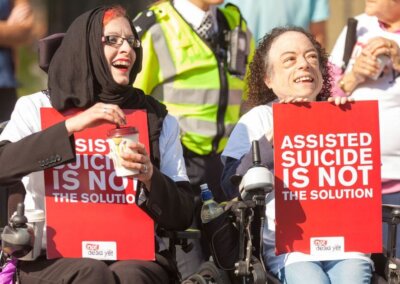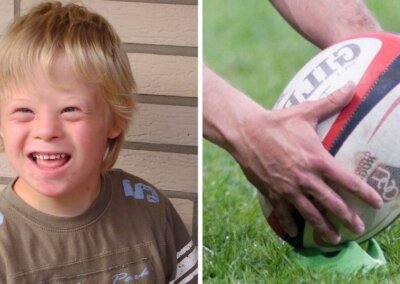The NHS has awarded compensation to a mother who said she would have aborted her son if she had known he had Down’s syndrome.
Edyta Mordel sued the Royal Berkshire NHS Foundation Trust over a failure to detect the condition in her son, Aleksander Mordel, before his birth in January 2015.
Mordel told the High Court in London, that although she is now devoted to Aleksander, she would have terminated the pregnancy if prenatal screening had been conducted and revealed that Aleksander had the condition.
When she discovered her pregnancy, Mordel claims she told a midwife that she wished to undergo a test that would screen for Down’s syndrome.
Lawyers for the NHS say that she was offered the test, but declined it. Therefore, a scan was carried out without screening.
Mordel’s medical notes record that she was “very and angry upset” when Aleksander was diagnosed hours after his birth, prompting her to sue the NHS for ‘wrongful birth’.
Mr Justice Jay ruled against the Royal Berkshire Hospital NHS Trust. The compensation payment is expected to be six figures.
Ruling in her favour, he said: “The claimant probably would have proceeded to invasive testing had she been told that there was a high risk of Down’s syndrome.
“[She] was a relatively young mother and I think that at the end of the day the fear that she might be carrying a child with Down’s syndrome would, at least for her, have tipped the balance.”
The High Court judge added that prenatal screening for Down’s syndrome should be offered to all expectant mothers as “many would wish to exercise their right to proceed to medical termination in the event of a diagnosis”.
In 2017, it was revealed that the NHS Litigation Authority had paid out more than £114 million in compensation to parents who said they would have aborted their children if they knew they were disabled.
Actress Sally Phillips has previously spoken out against testing for Down’s syndrome in the womb.
Phillips, whose 14-year-old son Olly has the condition, says the current system of disability screening is “a form of eugenics”.
She said that she and her son Olly have “happy and fulfilled lives”, as is normal for most families in their situation, and while there are challenges to raising a child with Down’s syndrome, there are also “great, great rewards”.
In England & Wales, government statistics show that where Down’s syndrome has been discovered in prenatal screening over 90% choose to abort the child. In Iceland, almost 100% of unborn babies prenatally diagnosed with Down’s syndrome are aborted.
Spokesperson for Right to Life UK, Catherine Robinson said:
“It is not wrongful that babies are born with Down syndrome or other disabilities. It is wrongful that taxpayer money is compensating a culture and a society which sees disabled children as an inconvenience.
“It is wrongful that the rise of prenatal screening tests across Europe has led to a state-funded programme targeting unborn babies who are perceived to have a disability. Babies, that as evidenced by Sally Philips and many other mothers with disabled children, lead happy and fulfilling lives.”












